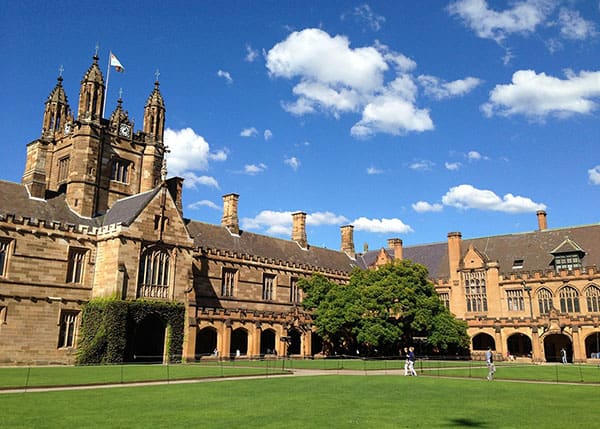Academics and researchers will be required to undergo more invasive background checks under a proposed set of federal guidelines to curb foreign interference among Australian universities.
The plans, drafted by the University Foreign Interference Taskforce (UFIT), remained confidential and were revealed to The Sydney Morning Herald by anonymous university executives who opposed the proposed changes. The masthead noted that Federal Education Minister Alan Tudge has refused to comment on the content of the guidelines.
The most controversial of the reforms will involve students receiving “training on and have access to information about how foreign interference can manifest on campus and how to raise concerns in the university or with appropriate authorities.”
Furthermore, it is anticipated that university orientations will “promote to all staff and students ways to report within their university concerns of foreign interference, intimidation and harassment that can lead to self-censorship.” Other reforms include compelling researchers to disclose all financial support received from foreign sources for research purposes over the past ten years.
In order to implement these measures, institutions must place supervision powers in an “accountable authority” drawing from universities’ senior management. The accountable authority is then tasked with screening international research collaborations for national security risks and presenting findings to the government. In this context, it is expected that universities must devise clear internal procedures to resolve complaints surrounding national security risks in USyd’s international links.
SRC President Swapnik Sanagavarapu said: “This is yet another case of fearmongering that is obviously targeted at Chinese students in an unfair and unreasonable manner. This kind of policy sets a worrying and dangerous precedent for universities and will undoubtedly give rise to greater racist sentiments against Chinese international students.”
It is understood that backlash against the disclosure requirement is already leading to a compromise on that provision being drafted by a separate UFIT working group led by UNSW Deputy Vice-Chancellor George Williams.
These developments in foreign interference guidelines follow a few tumultuous months for Australian universities as concerns escalate over freedom of speech in the higher education sector. In July, Federal Education Minister Alan Tudge considered withholding SSAF funds from student unions that “impede free speech” as part of a drive towards national free speech legislation.
The last UFIT Guidelines were published in November; Former Minister for Education Dan Tehan established UFIT as a parliamentary committee consisting of universities, the Group of Eight, the Department of Home Affairs, Education, Defence and Australia’s intelligence agencies. The group emerged out of concerns from the Morrison government that Australia’s tertiary sector represented a tension point given the highly sensitive nature of some research and technologies used by these institutions.
Rising concerns with foreign interference have been linked to growing anti-China sentiments as Sino-Australian relations continue to deteriorate. A recent report on COVID-19-related racism by the Asian-Australian Alliance has cautioned against an escalation of tensions within the context of the present COVID-19 lockdown in noting “a backdrop of rising anti-China sentiment that began prior to the pandemic as a result of the deterioration in Sino-Australian relations.”
“The continued scapegoating of migrant/CALD communities has shifted from Melbourne to Sydney but the underlying racial focus of the blame is the same,” the report said.
Further negotiations are being planned between peak industry bodies such as Universities Australia and UFIT to consolidate a final draft for the guidelines towards the end of the year.





